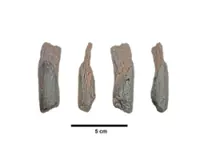AS a crowd gathered outside the white-brick Orthodox church in the village of Karyshkiv in western Ukraine, raised voices quickly turned to shouting. Soon old women were crying. The villagers were quarrelling over the affiliation of their parish church, which belonged to the Ukrainian Orthodox Church (UOC) that the government in Kyiv accuses of being under the influence of Moscow.
Most of the 30 or so villagers standing by the roadside wanted to switch their parish to the Orthodox Church of Ukraine (OCU), formed in 2019 and backed by the government, as hundreds of communities have voted to do since Russia’s invasion last year.





